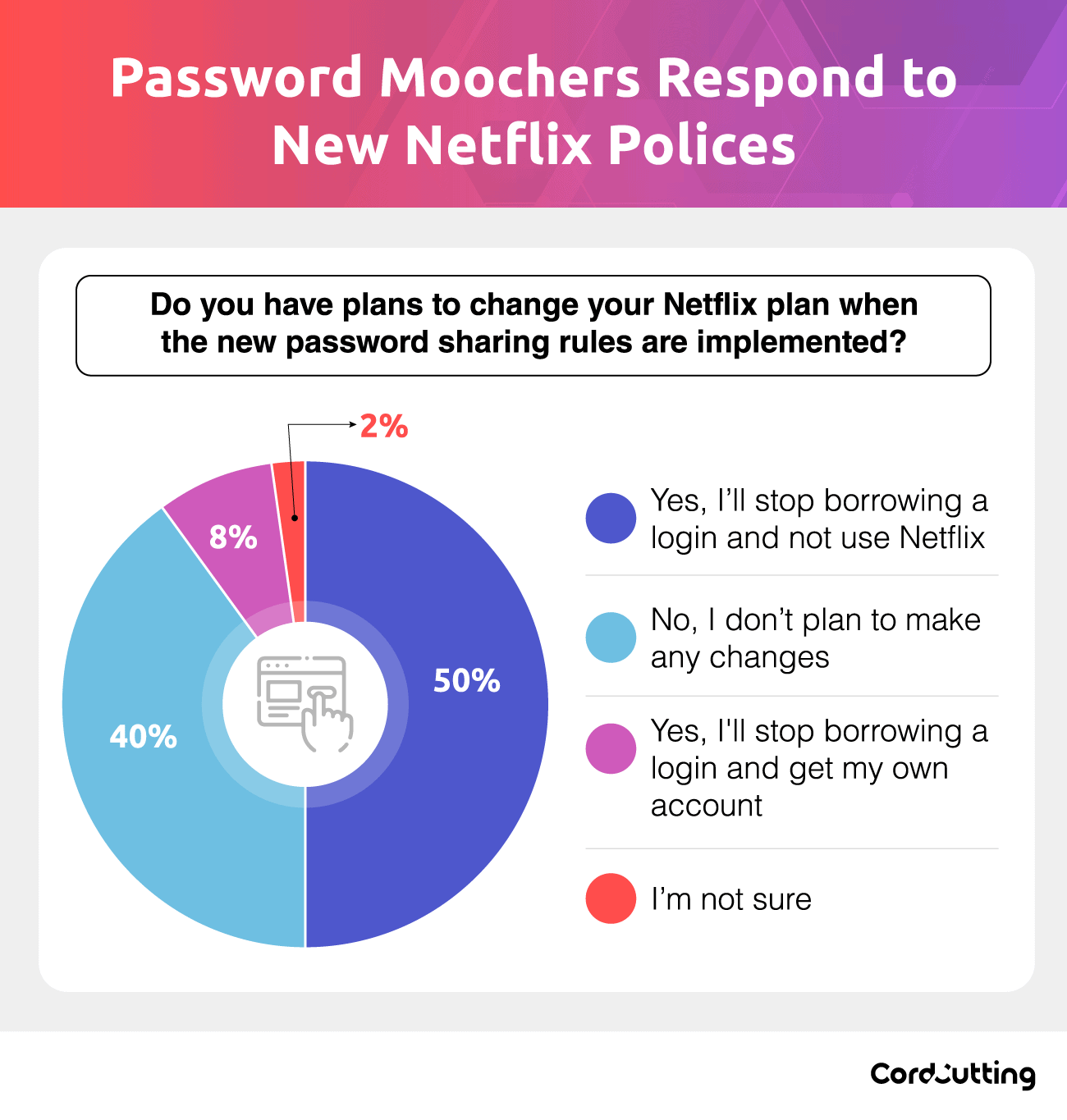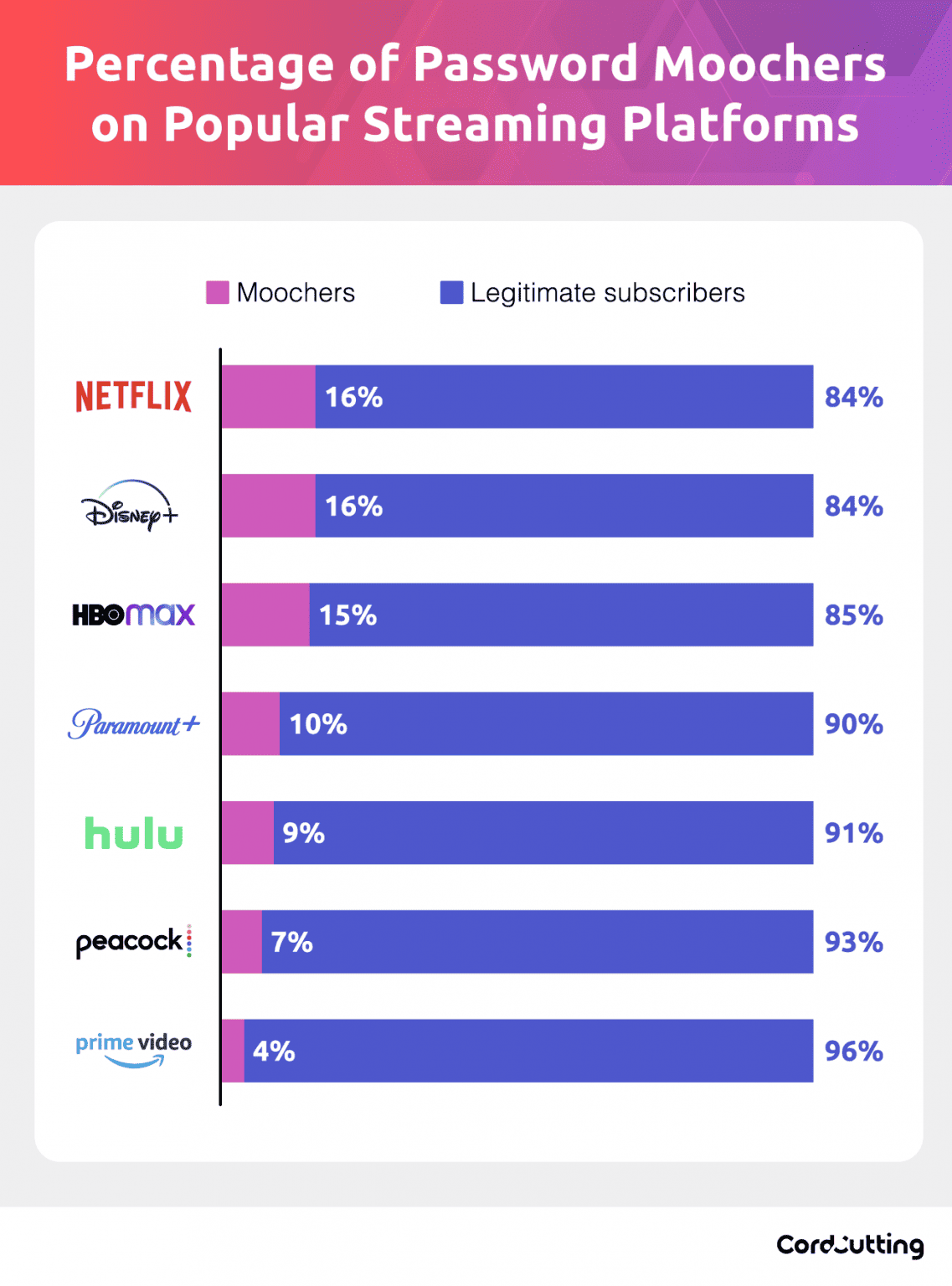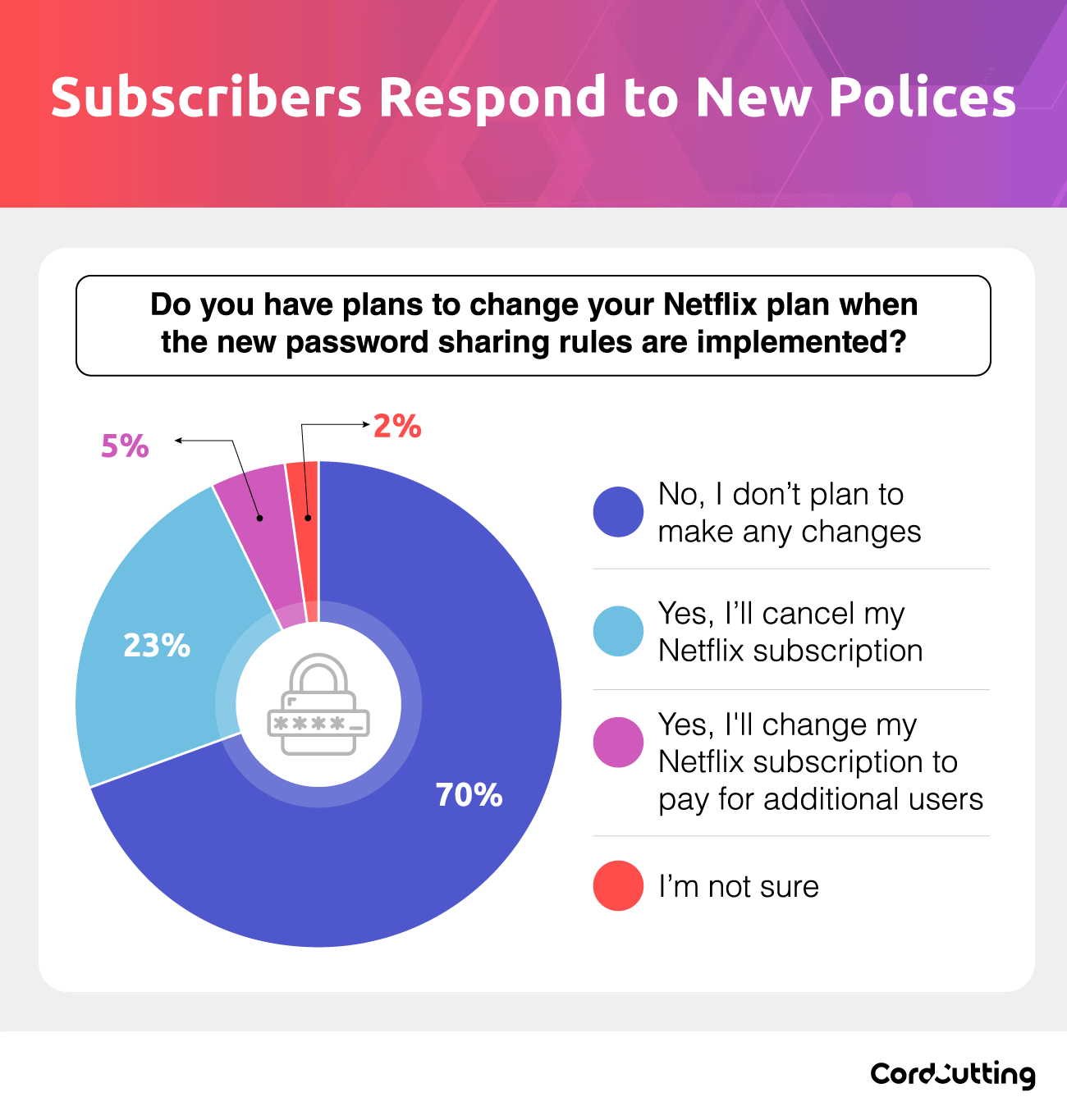Netflix Password Crackdown: Only 8% of Shared Users Plan to Subscribe
Half of those sharing a password said they would stop using Netflix according to a Cordcutting.com survey

A new survey from CordCutting.com indicates that Netflix’s crackdown on password sharing may not provide the positive boost in subscribers and revenue that some on Wall Street have hoped.
“Just 8% of these unauthorized Netflix users plan to pay for their own accounts now that Netflix has cracked down on password sharing,” the CordCutting.com survey found. While that will produce an additional 1.7 million paid users, “23% of paying users say they’d like to cancel their accounts in response to the new policies. That’s as many as 15.2 million people who could cancel their Netflix subscriptions.”

The survey also found that password sharing is a bigger problem for Netflix than any other platform except for Disney+ and that about 16% of Netflix users access accounts belonging to people outside their households.

When existing subscribers were asked how they would respond to the password crackdown, only 5% said they would pay extra for the additional users. The vast majority (70%) said they would make no changes to their account.

"The US isn't the first location Netflix has instated these changes," the researchers wrote. "The policy was rolled out in Canada, Portugal, Spain, and New Zealand. In Spain, Netflix has received a lot of backlash, which has resulted in a loss of revenue. With the reception of US Netflix users, it's possible the change will equate to a loss in this market as well."
Get the TV Tech Newsletter
The professional video industry's #1 source for news, trends and product and tech information. Sign up below.
George Winslow is the senior content producer for TV Tech. He has written about the television, media and technology industries for nearly 30 years for such publications as Broadcasting & Cable, Multichannel News and TV Tech. Over the years, he has edited a number of magazines, including Multichannel News International and World Screen, and moderated panels at such major industry events as NAB and MIP TV. He has published two books and dozens of encyclopedia articles on such subjects as the media, New York City history and economics.

